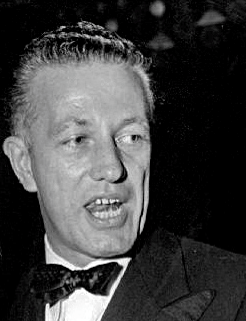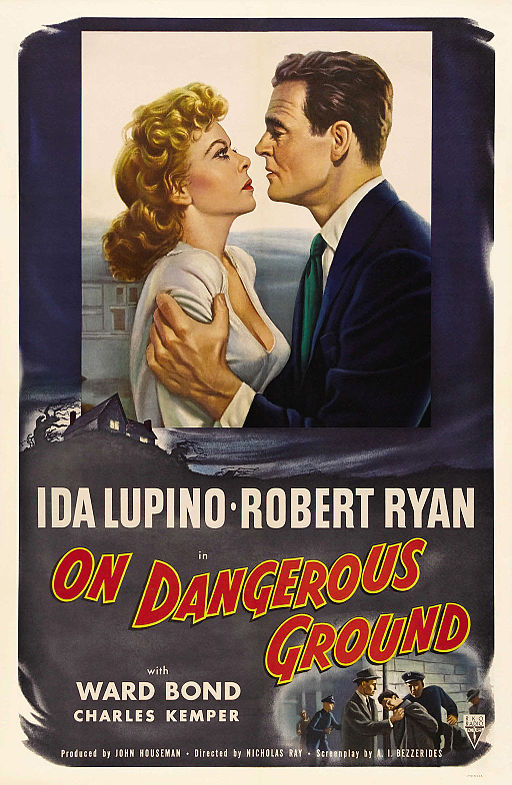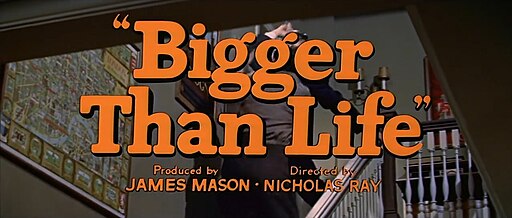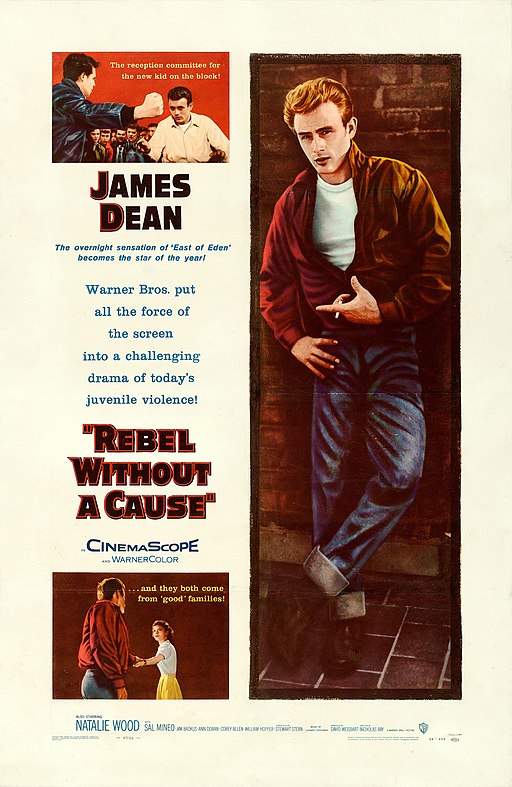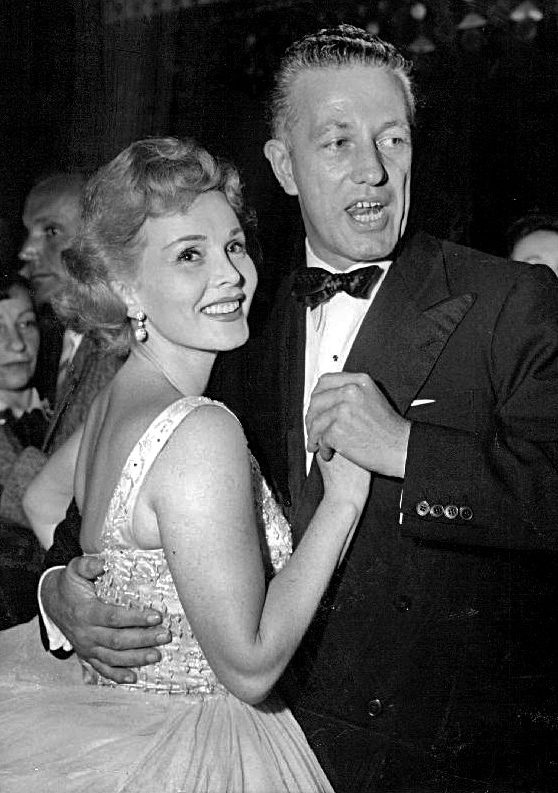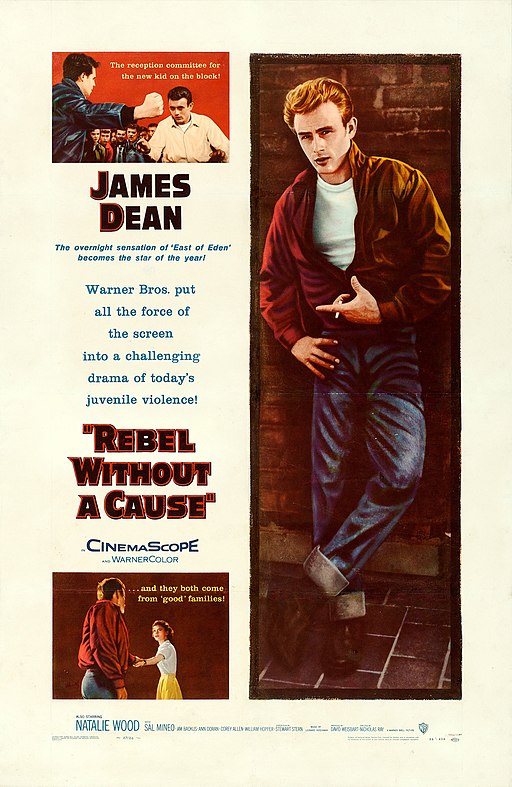Nicholas Ray
back| Full Name | Raymond Nicholas Kienzle |
| Born | August 7, 1911 |
| Birthplace | Galesville, Wisconsin, USA |
| Died | June 16, 1979 |
| Buried | Cremated, ashes scattered in a rose garden at the Cathedral of St. John the Divine, New York |
| Married to | Jean Evans (1931-1940), Gloria Grahame (1948-1952), Betty Utey (1954-1969) |
| Children | Anthony Ray (with Jean Evans), Timothy Ray (with Betty Utey) |
| Notable films | Rebel Without a Cause (1955) - In a Lonely Place (1950) - Johnny Guitar (1954) - On Dangerous Ground (1951) |
Nicholas Ray
The cnematic poet of human complexity
Nicholas Ray, born Raymond Nicholas Kienzle on August 7, 1911, in Galesville, Wisconsin, was an influential American film director whose work exemplified the artistic potential of cinema. He began his career with avant-garde theater and radio in the 1930s before transitioning to Hollywood. Ray's directorial debut, "They Live by Night" (1948), set the tone for his exploration of outsider themes and emotional complexity.
Ray's most iconic film, "Rebel Without a Cause" (1955), starring James Dean, is celebrated for its poignant depiction of teenage angst and masterful use of color and composition. His style, marked by psychological depth and innovative visual storytelling, was evident in other notable works like "In a Lonely Place" (1950) and "Johnny Guitar" (1954), films that defied conventional narrative structures and delved into the human psyche.
Throughout the 1950s, Ray's films often portrayed characters grappling with societal norms, making him a favorite among the countercultural audiences. Despite battling personal issues and fading Hollywood support in the 1960s, Ray continued to influence cinema, notably contributing to the New Hollywood era and French New Wave.
Related
Nicholas Ray
Biography, analysis of his work and all his films
Nicholas Ray was an American film director and writer, whose innovative narrative and visual style made him one of the most influential filmmakers of his time. Born Raymond Nicholas Kienzle, he began his career in the theater and radio before moving to Hollywood.
Early Career
Ray's early work in New York City's Federal Theatre Project and with Elia Kazan's theatre company shaped his understanding of drama and storytelling. He worked as an assistant to Kazan and was part of the radical theatre movement of the 1930s.
Hollywood Success
Ray's directorial debut came with "They Live by Night" (1948), which established his reputation for emotional intensity and innovative use of cinematic space. His most famous film, "Rebel Without a Cause" (1955), starring James Dean, is acclaimed for its sensitive portrayal of adolescent angst and its striking visual style.
Style and Themes
Ray's work often explored themes of individuality, rebellion, and the plight of outsiders. He was known for his expressive use of color, location, and innovative cinematography. His ability to elicit strong performances from his actors was also a hallmark of his style.
Later Career and Teaching
In the late 1960s, Ray's Hollywood career waned, partly due to personal struggles, including drug and alcohol abuse. He later moved into teaching, including a notable period at Harpur College (now Binghamton University), where he influenced a new generation of filmmakers.
Death and Legacy
Nicholas Ray died of lung cancer in 1979. His influence on cinema, especially on the New Hollywood directors of the 1970s and the French New Wave, remains profound. Ray's work is celebrated for its emotional depth, stylistic innovation, and enduring impact on the language of film.
List of movies directed by Nicholas Ray:
1948: "They Live by Night"
- A film noir about young lovers on the run, focusing on the life of an escaped convict and his girlfriend.
1949: "A Woman's Secret"
- A drama centered around a retired singer who's accused of shooting her protégée, with complex relationships unfolding.
1950: "In a Lonely Place"
- A moody film noir starring Humphrey Bogart as a troubled screenwriter suspected of murder, exploring themes of love and violence.
1950: "Knock on Any Door"
- Another Bogart-starring film, this one focuses on a lawyer defending a youth from a murder charge, examining social issues of the time.
1951: "On Dangerous Ground"
- A film noir about a jaded city cop finding redemption while solving a rural murder case.
1952: "The Lusty Men"
- A Western drama centered around the lives of rodeo performers.
1953: "Born to Be Bad"
- A melodrama featuring a manipulative woman who marries a wealthy man but continues an affair with a novelist.
1954: "Johnny Guitar"
- A Western with a strong female lead, involving rival saloon owners and unconventional gender roles.
1955: "Rebel Without a Cause"
- The iconic teen angst film starring James Dean, portraying the moral decay and confusion of American youth.
1956: "Bigger Than Life"
- A drama about a schoolteacher's addiction to cortisone, leading to a psychotic breakdown.
1957: "Bitter Victory"
- A World War II film exploring the complexities and ironies of heroism and war.
1958: "Wind Across the Everglades"
- A drama set in the early 20th century, focusing on the poaching of birds in Florida.
1958: "Party Girl"
- A crime film noir set in the 1930s about a lawyer who gets involved with gangsters.
1959: "The Savage Innocents"
- An adventure drama about an Inuit man who faces cultural clashes and survival challenges in the Arctic.
1960: "The 13th Letter" (Uncredited)
- A psychological drama about anonymous poison-pen letters wreaking havoc in a small town.
1961: "King of Kings"
- An epic film that portrays the life of Jesus Christ.
1963: "55 Days at Peking" (Uncredited)
- A historical epic about the Boxer Rebellion in China.
Analysis of Nicholas Ray’s style of direction:
Nicholas Ray's directorial style is renowned for its emotional depth, visual innovation, and nuanced storytelling, making him a significant figure in American cinema, particularly in the 1950s. Here are key aspects of his style:
Emotional Intensity and Character Depth
Ray had a unique ability to explore the psychological complexity of his characters. He delved deeply into their emotional states, often focusing on themes of alienation, rebellion, and the struggles of individuals against societal norms. His characters were multifaceted and richly drawn, often portrayed as outsiders or loners.
Innovative Use of Cinematic Space
Ray was known for his creative and sometimes unconventional use of cinematic space. He frequently employed dramatic compositions, unusual camera angles, and innovative mise-en-scène to heighten the emotional impact of his scenes. This approach not only made his films visually striking but also reinforced their thematic content.
Expressionistic Use of Color and Light
In films like "Johnny Guitar" and "Rebel Without a Cause," Ray used color and lighting to create mood and underscore the emotional states of his characters. His use of vibrant colors was often symbolic and added a layer of meaning to the narrative.
Exploration of Social Issues
Many of Ray's films explored pertinent social issues of the time, including juvenile delinquency, drug addiction, and the challenges of war. He approached these topics with a sense of realism and a sympathetic eye, avoiding simplistic moralizing in favor of more nuanced, character-driven narratives.
Collaboration with Actors
Ray was known for his collaborative approach with actors, often encouraging improvisation and deeply involving them in the development of their characters. This approach helped elicit powerful, authentic performances and is evident in James Dean's iconic role in "Rebel Without a Cause."
Impact on Future Filmmakers
Ray's influence extends beyond the films he made. He inspired future generations of filmmakers, particularly those of the New Hollywood era in the 1970s and the French New Wave directors, who admired his personal approach to filmmaking and his ability to blend artistry with accessibility.
In summary, Nicholas Ray's directorial style is characterized by its emotional resonance, innovative visual storytelling, and profound exploration of complex characters and societal issues. His films remain influential for their stylistic boldness and their compassionate, humanistic approach to storytelling.
Awards and Nominations:
Nicholas Ray, despite his significant influence and contributions to cinema, did not amass a large collection of awards and nominations during his career, particularly from major award-giving bodies like the Academy Awards or the Golden Globes.
This is partly reflective of the era and the types of films he made, which were often more avant-garde and less mainstream compared to the typical award-winning fare. However, his work has been recognized and celebrated in other ways:
Cannes Film Festival:
- "We Can't Go Home Again" (1973): This experimental film, which Ray worked on with his students, was screened at the Cannes Film Festival. It was an innovative project but did not win any awards at the festival.
Venice Film Festival:
- "Johnny Guitar" (1954): While not a recipient of awards at the time of its release, "Johnny Guitar" was retrospectively recognized at the Venice Film Festival in 1982, long after its initial release, indicating the lasting impact of Ray's work.
Later Recognition:
- Nicholas Ray's films, especially "Rebel Without a Cause," have received critical acclaim and scholarly attention long after their release. His innovative style and thematic boldness have been retrospectively acknowledged by film critics and historians.
Influence and Legacy:
- Ray's impact on cinema extends beyond conventional awards. His influence on future generations of filmmakers, including those in the French New Wave and New Hollywood movements, is a testament to his legacy. Directors like Jean-Luc Godard, François Truffaut, and Martin Scorsese have cited Ray as a significant influence.
Remarkable quotes from Nicholas Ray:
On Cinematic Storytelling:
"Cinema is the most beautiful fraud in the world."
Regarding Characters:
"I'm interested in the people who are not winners. I'm interested in the tragedy of the human being."
On Directing:
"A director must be a policeman, a midwife, a psychoanalyst, a sycophant, and a bastard."
On Film Artistry:
"The only solutions that are ever worth anything are the solutions that people find themselves."
On Film and Life:
"There's no such thing as a born director. It's a quality you learn and earn and grow into."
On Creativity:
"If it were all in the script, why make the film?"
Reflecting on Film's Power:
"Film as dream, film as music. No art passes our conscience in the way film does, and goes directly to our feelings, deep down into the dark rooms of our souls."

